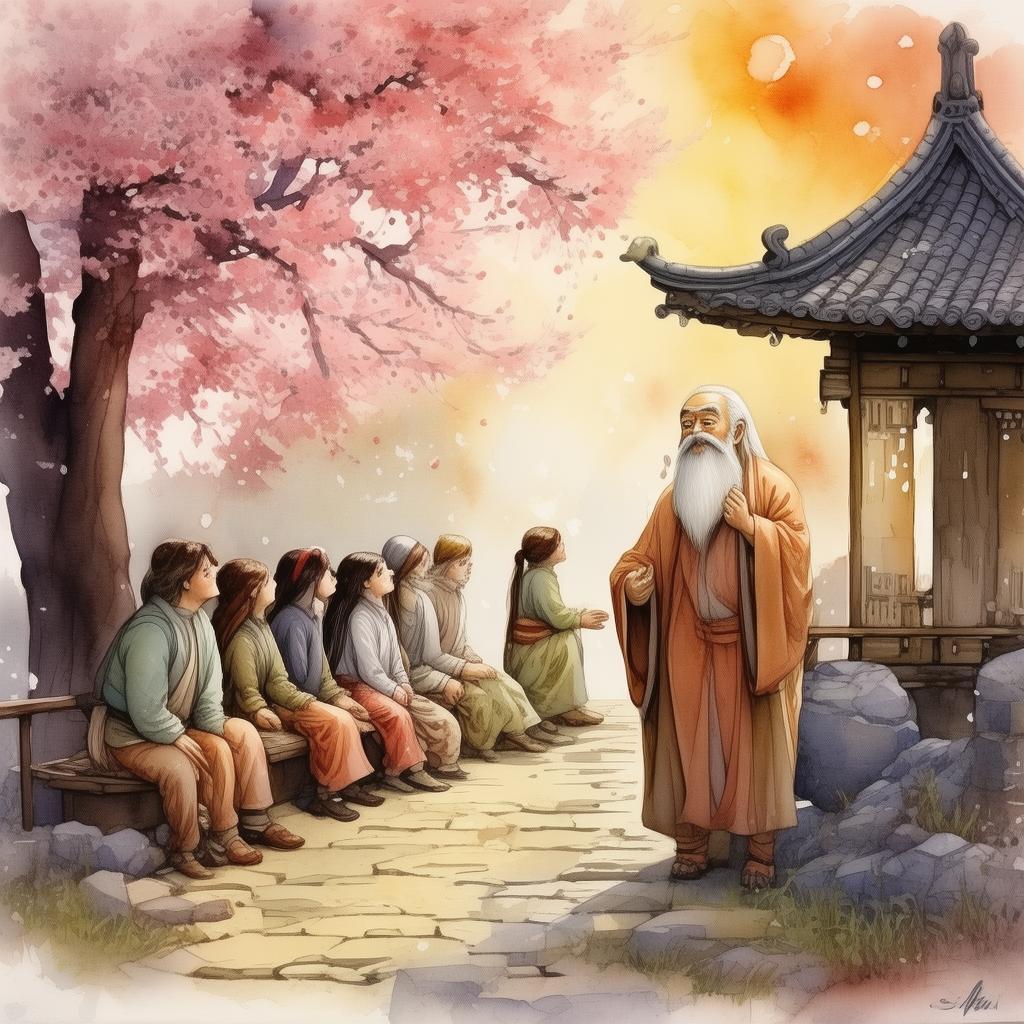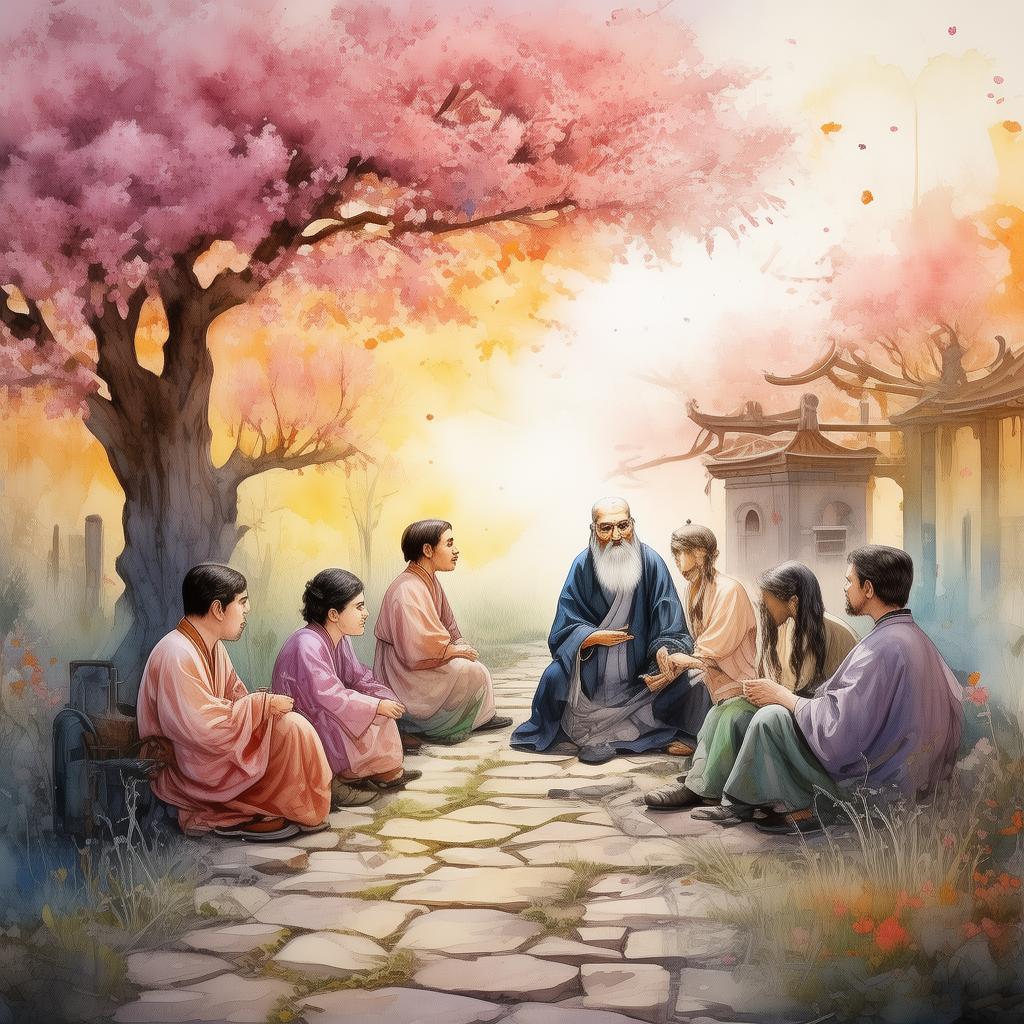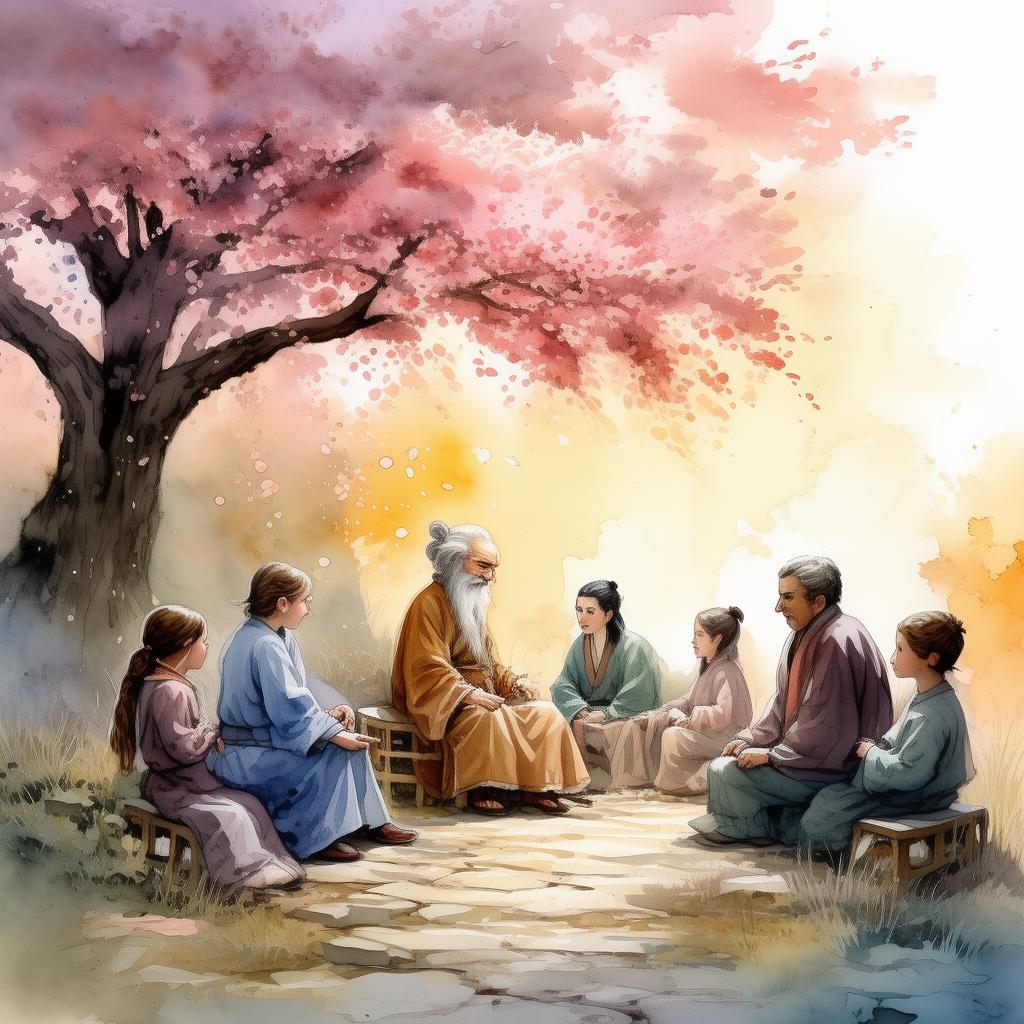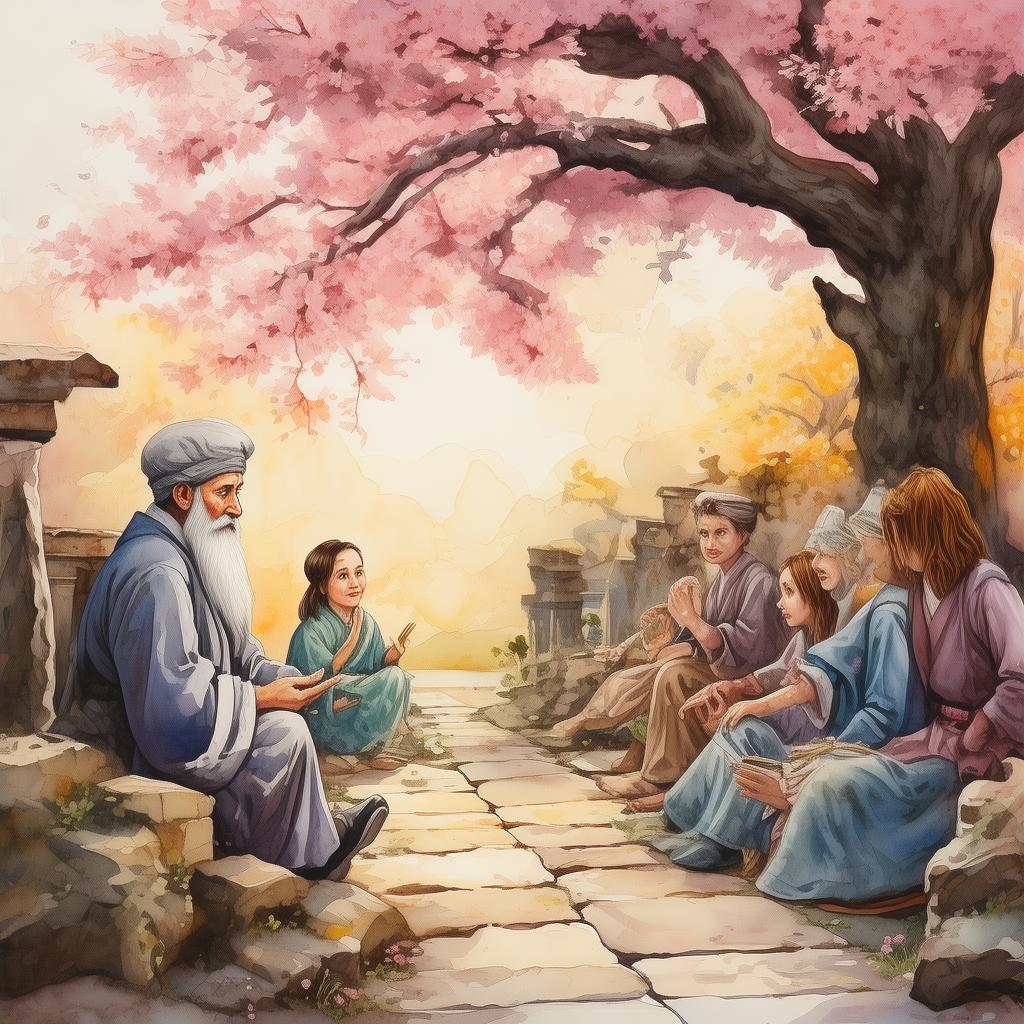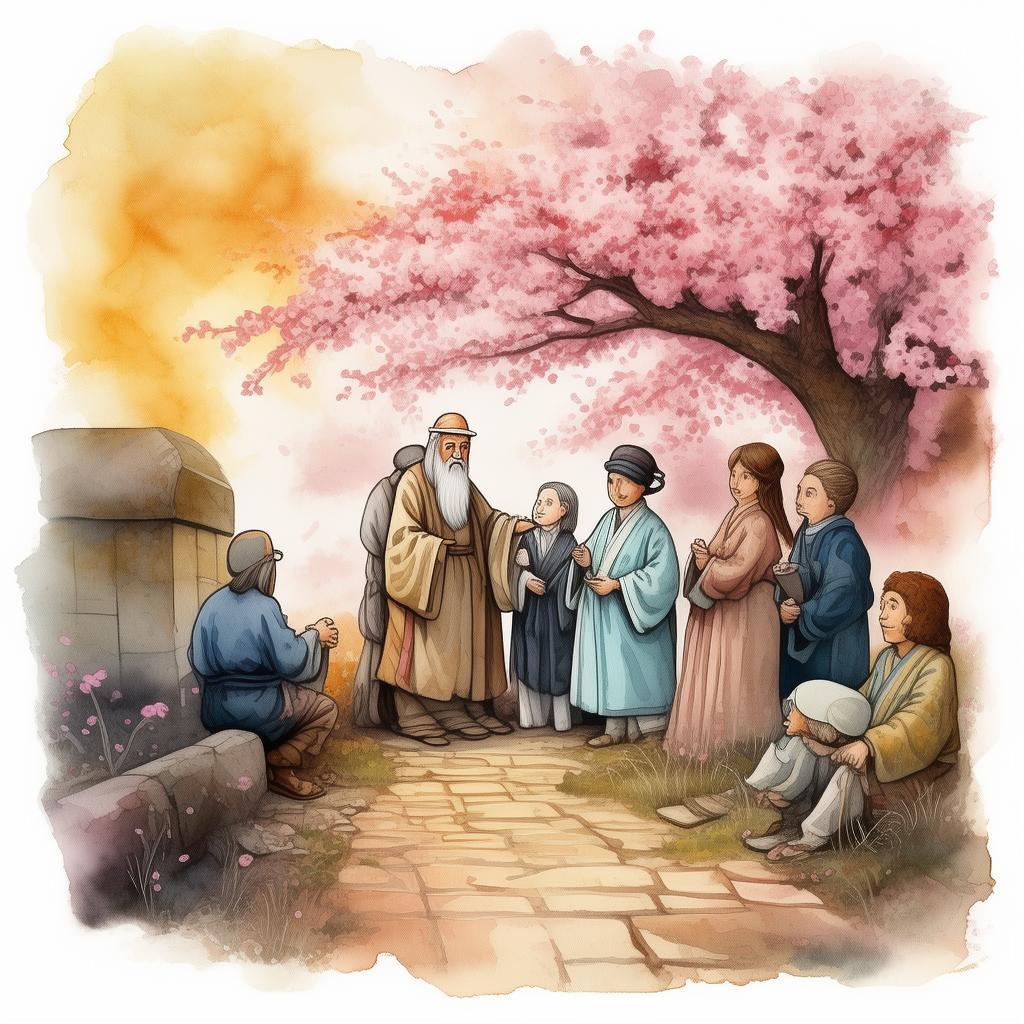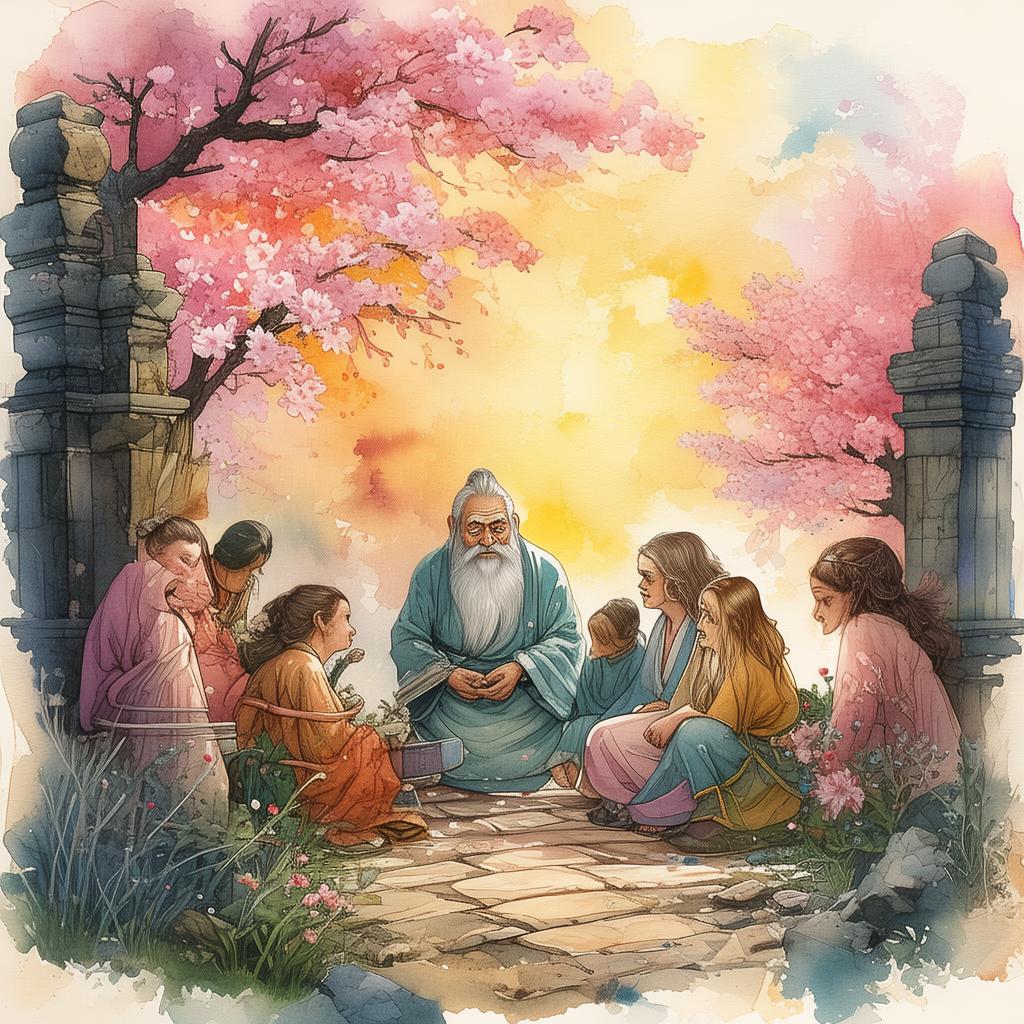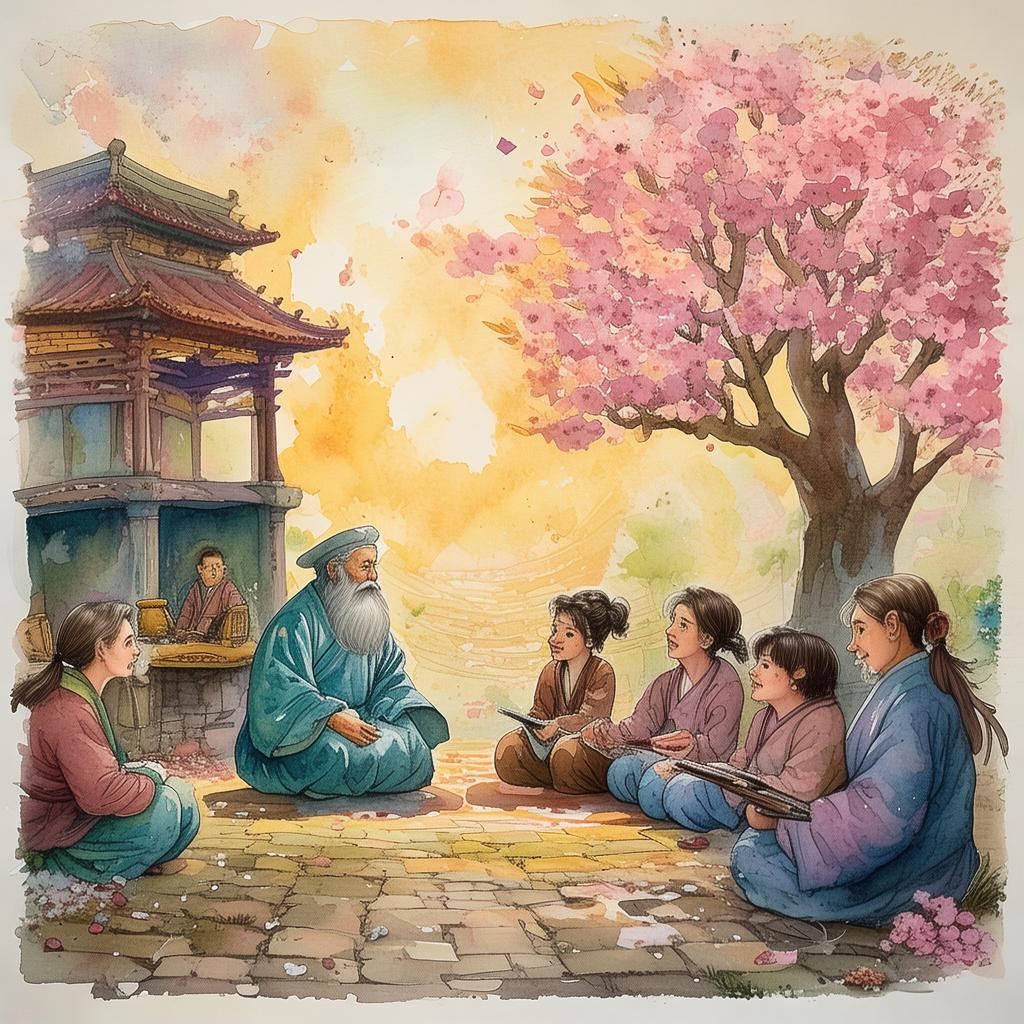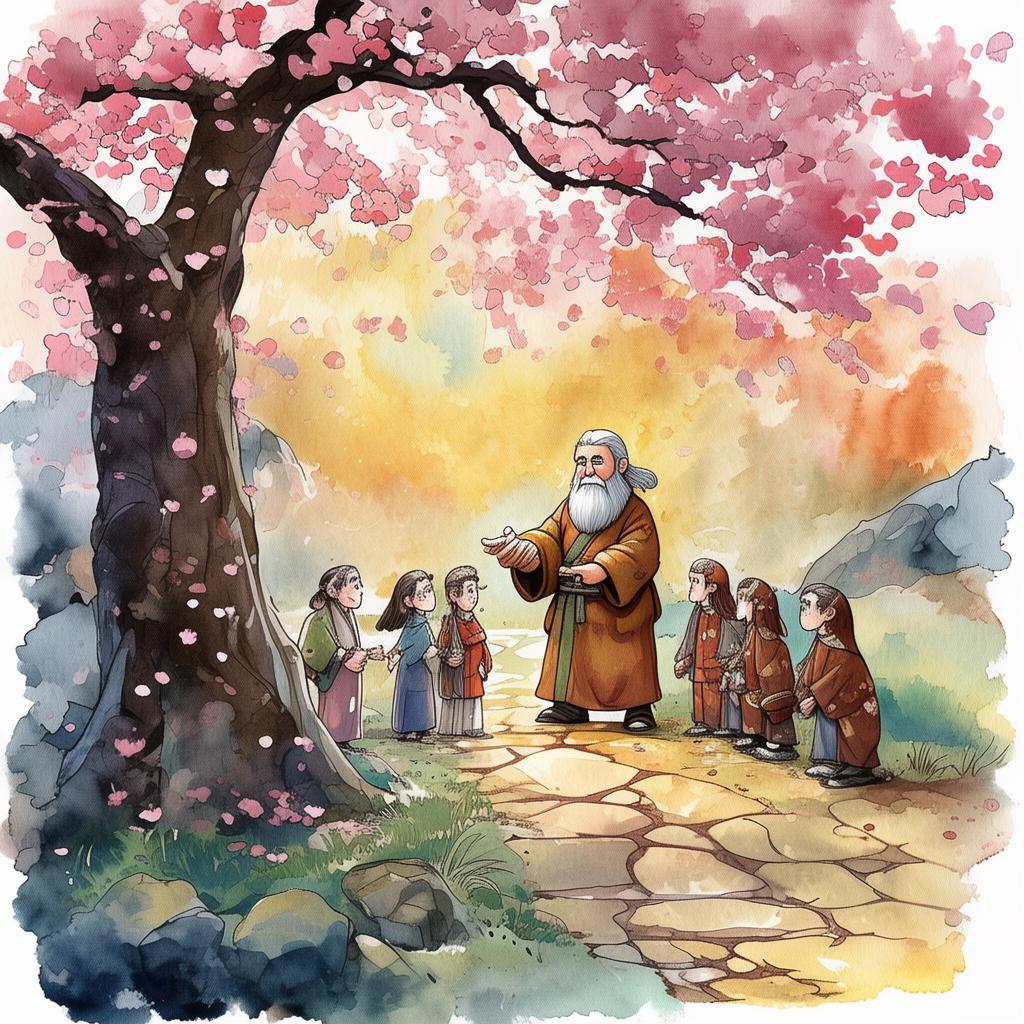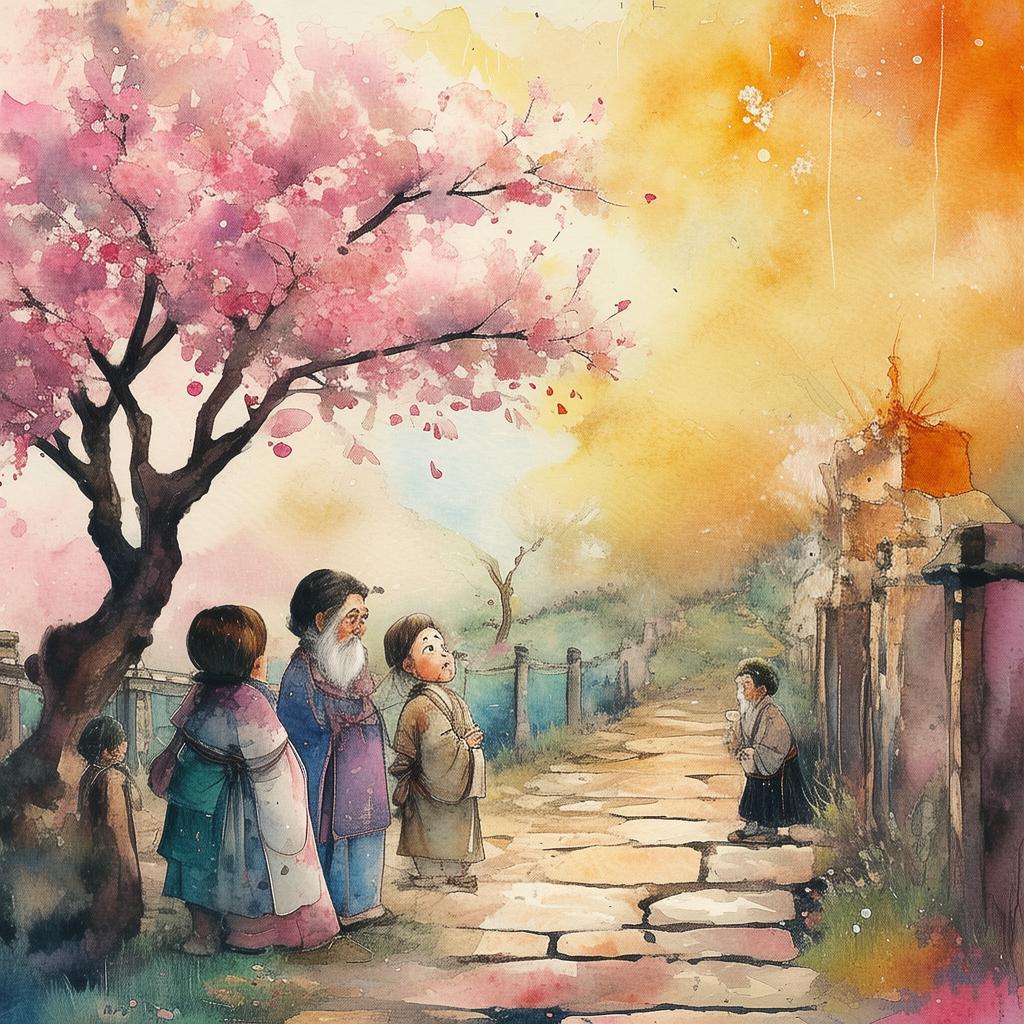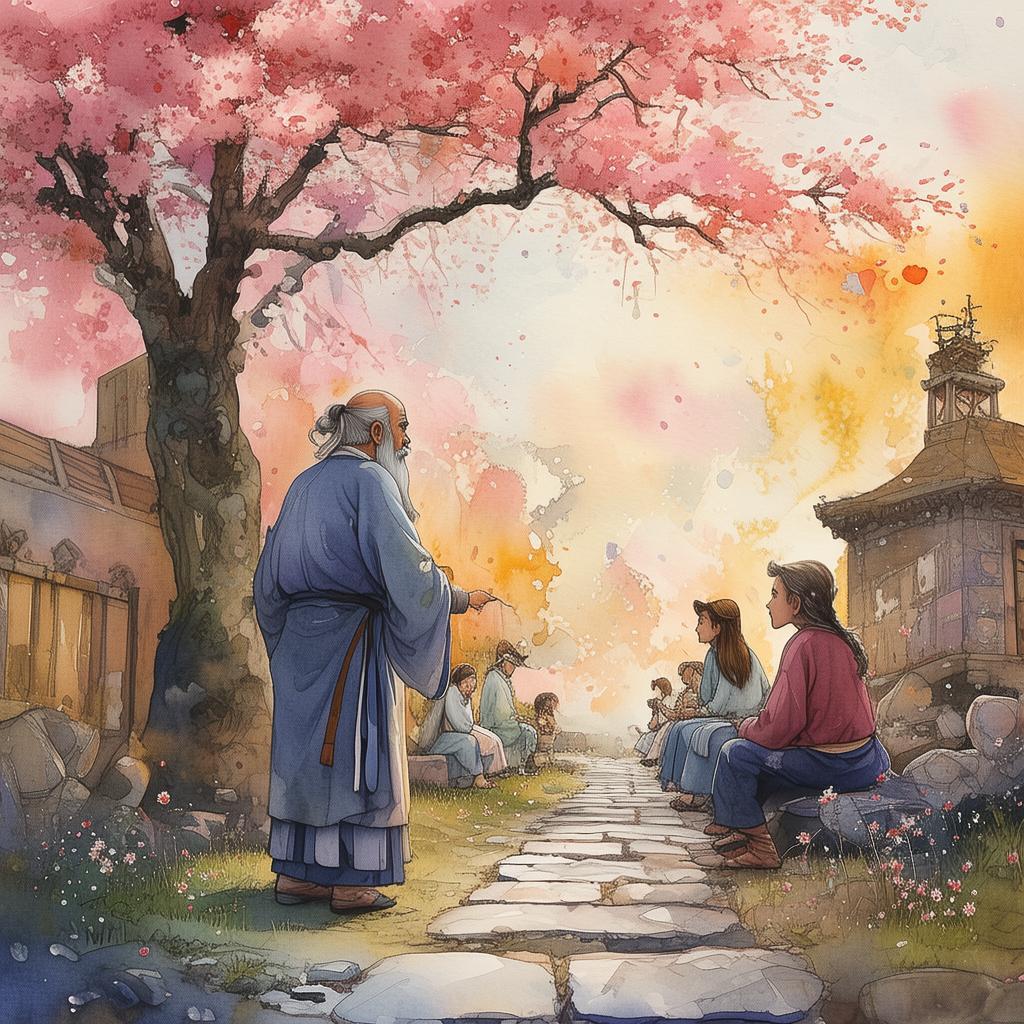Pen of Redemption: The Calligrapher's Purgatory
In the ancient city of Jing, nestled between the mountains and the sea, there lived a master calligrapher named Lin. His name was whispered in reverence, for his brush strokes were said to hold the essence of the soul. Lin's art was not merely ink on paper; it was a testament to the profound connection between the human spirit and the written word.
One fateful night, as Lin was penning a scroll of profound wisdom, a shadow fell over his work. A figure emerged, cloaked in mystery, and whispered words that would change Lin's life forever. "Your pen has forged many souls, but it has also bound them in chains of anger and resentment. You must now face the purgatory of your own soul to free them."
Thus began Lin's journey through the purgatory of his own making. Each soul he had bound with his pen appeared before him, demanding justice for the pain they had endured. The first was a woman whose husband had been killed in a duel, her heart heavy with the weight of his death. The second was a child, whose parents had abandoned him, leaving him to the streets. Each soul's story was a testament to the darkness that can be cast upon the soul by the pen.
As Lin faced these souls, he realized that his own soul was as bound as theirs. He had written curses and spells, binding others in a web of suffering. The purgatory was a place of reflection, where he had to confront the consequences of his actions.
One by one, Lin sought to free these souls. He used his pen to write forgiveness, to undo the curses he had cast. The woman's heart began to heal, and she found peace in the knowledge that her husband had not died in vain. The child, once lost and alone, found a new family, a new home.
But the purgatory was not without its trials. Lin's own soul was tested, as he had to confront the darkest parts of himself. He had to forgive himself for the pain he had caused, for the souls he had bound. It was a difficult journey, filled with doubt and despair.
In the depths of his purgatory, Lin encountered a figure who represented his own soul. This figure was a reflection of his past, his mistakes, and his regrets. The figure spoke to Lin, "You must forgive yourself, for without forgiveness, you cannot truly free others."
Lin took this message to heart. He realized that the pen was not just a tool for binding, but also for redemption. With each stroke of his brush, he wrote not only forgiveness for others but also for himself. The darkness within him began to fade, and his soul was cleansed.
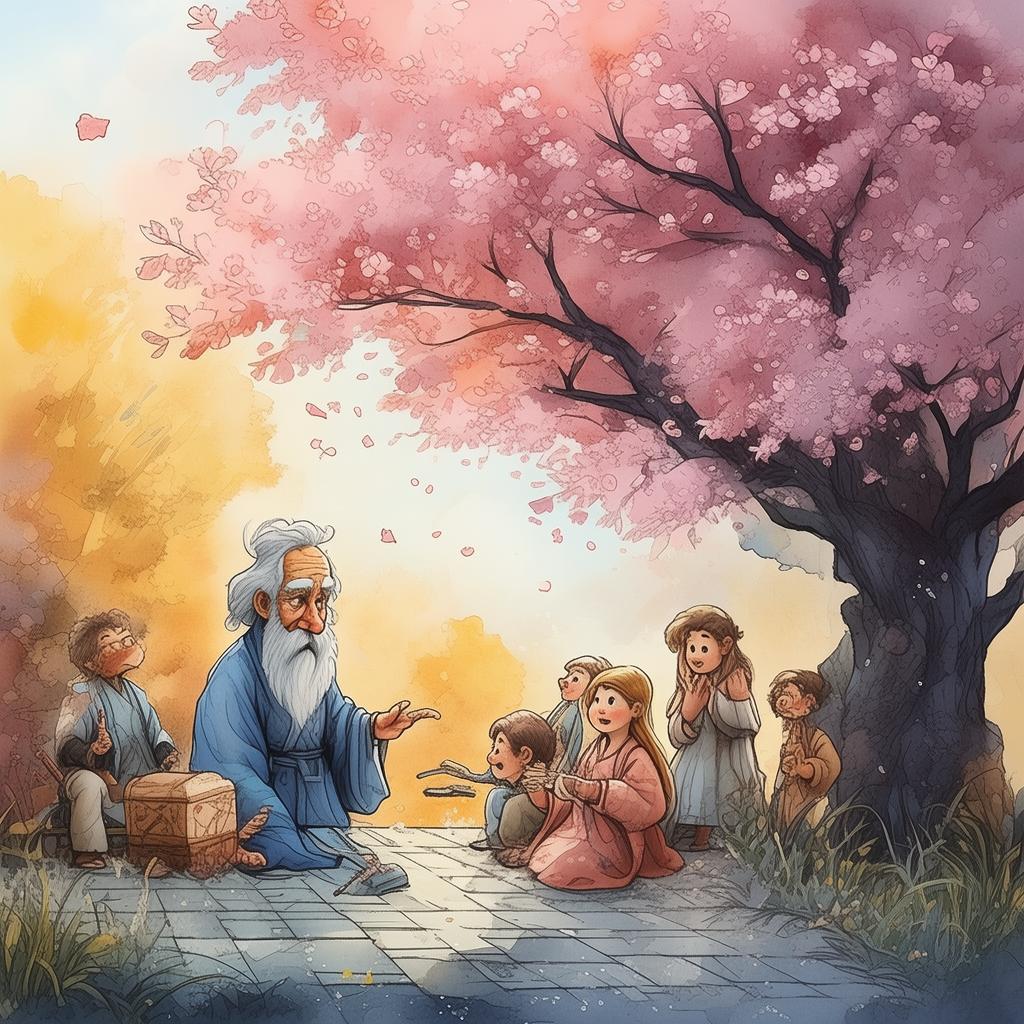
Finally, Lin reached the end of his purgatory. The last soul he had to free was his own. He wrote the word "Forgiveness" on the scroll, and as he did, a light enveloped him. The chains that had bound his soul were broken, and he was free.
Lin returned to the world, his soul lighter, his heart at peace. He realized that the pen was a powerful tool, capable of both binding and freeing. From that day forward, he used his pen to write not just words, but hope, love, and redemption.
The story of Lin's journey through the purgatory of his soul spread far and wide. It became a tale of transformation, of the power of forgiveness, and the quest for redemption. And so, the master calligrapher's pen became a symbol of hope, a reminder that even the darkest souls could be saved through the power of love and forgiveness.
✨ Original Statement ✨
All articles published on this website (including but not limited to text, images, videos, and other content) are original or authorized for reposting and are protected by relevant laws. Without the explicit written permission of this website, no individual or organization may copy, modify, repost, or use the content for commercial purposes.
If you need to quote or cooperate, please contact this site for authorization. We reserve the right to pursue legal responsibility for any unauthorized use.
Hereby declared.
